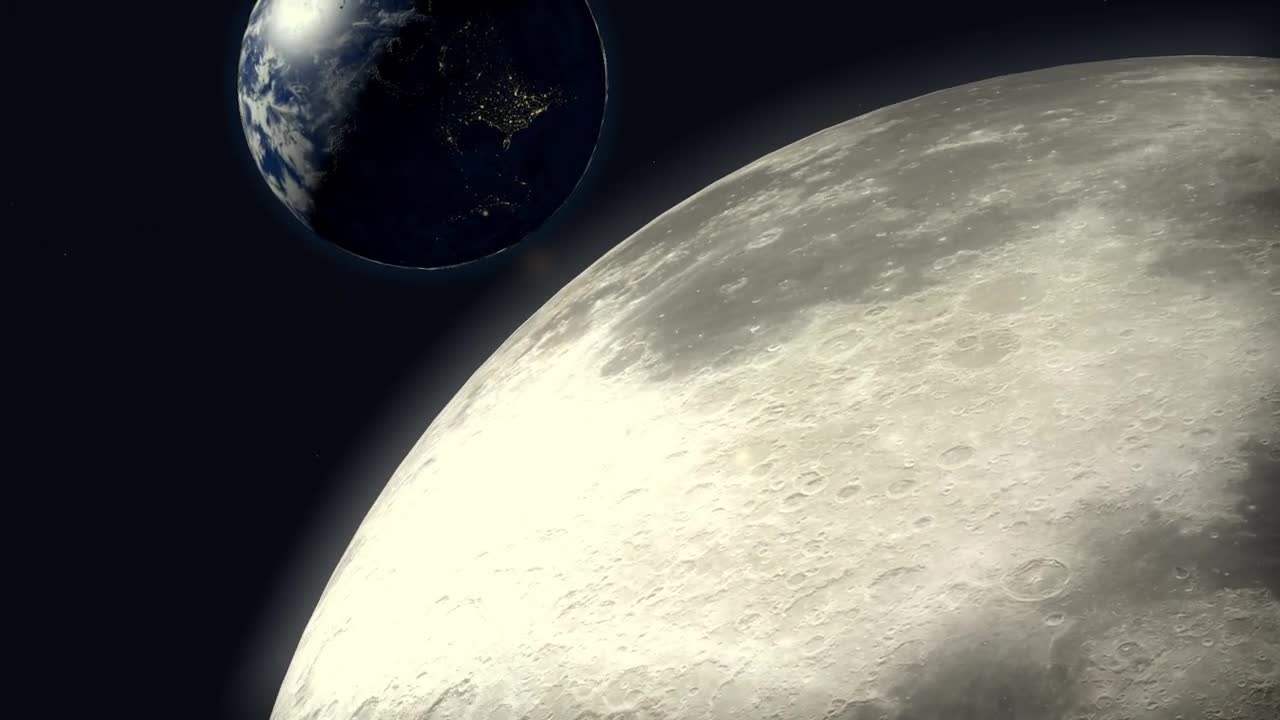Premium Only Content

2026 #SpaceX Earth to #Mars Mission ft. Elon Musk (Animation)
SpaceX's first crewed mission to Mars could be just four years away. Company founder and CEO Elon Musk said that he's "highly confident" SpaceX will launch people toward the Red Planet in 2026, adding that the milestone could come as early as 2024 "if we get lucky."
#SpaceX #Mars #Starship
Music in the Video:
-------
Song: Colin Root - Blackout (No Copyright Music)
Elon Musk is definitely the most ambitious of all the space race competitors. While China has accepted that sending humans to Mars is a long-term goal, the founder of SpaceX wants to send humans over sooner than later, Bloomberg reports. Like, in the next decade. He even said, last year during an interview, that he was confident a crewed mission could take place as soon as 2026. Musk has enough sense to admit that it would be “tough sledding over there” adding that “a bunch of people probably will die at the beginning,” in an interview with X Prize Foundation founder Peter Diamandis. But numerous scientists, on the other hand, are far more concerned, warning of the multiple challenges confronting deep-space travel. This is what Musk should be worried about:
The insane distance between getting there and back: Mars is so far away that the logistics are one of the toughest things for scientists to figure out: With the distance between Mars and Earth varying between 35 million miles and 249 million miles [which takes between six to nine months] due to their elliptical orbits, there’s only a small window available when the two are ideally aligned for space travel. Getting home would be just as challenging, with the added concern of where to get enough rocket fuel. Unfortunately, the total fuel needed is too heavy to carry on the trip to Mars, so Joseph Michalski, an associate professor who explores the habitability of Mars at the University of Hong Kong, said astronauts and scientists would have to make the fuel while they were on the red planet.
Solar Radiation: A solar flare is the most powerful type of explosion in the solar system, equivalent to 100 million hydrogen bombs. Anybody travelling into deep space would simply not survive if they were hit by this kind of radiation: “It’s a very gruesome way to die,” said Lewis Dartnell, a professor and specialist in astrobiology in the Department of Life Sciences at the University of Westminster in London. Yikes.
Massive dust storms: Dust storms could be devastating, according to Nilton Renno, a professor at the University of Michigan whose research interests include astrobiology: During such a storm, “it’s almost like midnight on the surface of Mars for two months,” Renno said. “If you are there with solar panels for power, you very likely don’t survive. You don’t have enough energy to keep things warm enough.”
Water, food, and oxygen: Snow algae might be the solution to growing food on the red planet.
NASA has been supporting this research by Elisabeth Hausrath – an associate professor at the University of Nevada, Las Vegas – for the past year. Snow algae is a type that’s common in the Nevada desert and other high-altitude, low-nutrient environments on Earth, which are the exact conditions found on Mars: “They’ve been growing great,” she said. The idea is that the algae could grow in greenhouses made of a flexible material similar to that of a space suit. Growing algae in such conditions could not only create a source of food but also produce oxygen. The Mars travelers also need to have water on hand, which they can’t necessarily bring with them, or enough, anyway.
Luckily, the planet does have some sub-surface ice that could be water sources, which future Mars mission would need to map out: “Once you know where the ice is, those are locations where you might send humans,” said Victoria Hamilton, a planetary geologist at the Southwest Research Institute in Boulder, Colorado. So it looks like life on Mars for us earthlings wouldn’t be all that Musk makes it out to be. But who knows where 50 to 100 years of technological advancements and scientific research will get us.
-
 1:13
1:13
Reuters Innovation
2 years agoChinese astronauts land on Earth after space mission
562 -
 4:16:04
4:16:04
TheLaunchPad
2 years agoLIFTOFF! Historic 1st Private ISS Mission #AX1 #SpaceX
9 -
 3:22
3:22
ConsciousnessAwareness
2 years agoNEGATIVE ENERGIES & YOUR MISSION ON EARTH
28 -
 1:53
1:53
Reuters
2 years agoU.S. astronaut returns to earth after record ISS mission
79226 -
 1:15:19
1:15:19
Dr. Drew
6 hours agoMy Pasadena Home Is Surrounded By CA Wildfires w/ OC Fire Chief Brian Fennessy & LA's John Phillips – Ask Dr. Drew
15.4K9 -

Melonie Mac
3 hours agoGo Boom Live Ep 33!
17.4K3 -
 LIVE
LIVE
2 MIKES LIVE
6 hours ago2 MIKES LIVE #164 with Special Guests SARAH WESTALL and ALEC LACE!
358 watching -
 49:16
49:16
Sarah Westall
3 hours agoComparisons: Maui Fire and North Carolina Hurricane – Land & Resource Grabs w/ Michelle Melendez
15.1K10 -
 1:00
1:00
Congresswoman Harriet Hageman
6 hours agoCongresswoman Harriet Hageman Rumble Rollout
19.1K44 -
 3:13:02
3:13:02
Scammer Payback
5 hours agoCalling Scammers Live
34.6K4